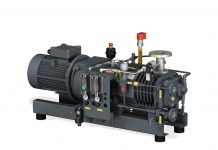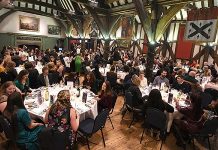Manchester in general
Manchester is a city in the North West of England; it is part of the Greater Manchester conurbation, the largest conurbation outside of Greater London. Manchester itself is home to two world class football teams, Manchester United and Manchester City, plus a legendary cricket club which was founded in 1864. It is also home to three world class Universities including the University of Salford. 
Transport Manchester
Manchester is home to the only completely looped motorway in the UK – the M60. The M60 forms a ring road around most areas of Manchester and is fed directly or indirectly from the M62, M66, M67, M61 and M56. Manchester has a huge transport network incorporating 4 main train stations in the Centre of Manchester alone plus a free bus service around Manchester City Centre. Manchester has a comprehensive tram link called the Metrolink, by 2016 it is estimated that the Metrolink will be the largest local transport system outside of Greater London. The transport links in Manchester also make it a Guinness World Record Holder – for having the most traffic lanes side by side at the Worsley Braided Interchange. The area is also serviced by Manchester Airport, the third largest airport outside of London. Manchester is also home to the famous Manchester Ship Canal, which as of 2011 is owned by Peel Ports who also operate the site. In 2011, Peel announced a £50 billion Atlantic Gateway plan to develop the Manchester Ship Canal, Port Salford and the Port of Liverpool to help reduce road congestion and improve supply chain links. Once finished, the scheme will house a large distribution centre to be named Port Salford and an additional six sites along the canal for the loading and unloading of freight. Peel Ports predict that the number of containers transported along the canal could increase from the 8000 carried in 2010 to 100,000 by 2030.
History of Manchester
The history of Manchester dates back to AD79. Since then Manchester has transformed itself from a small wool trading town, to an industrial weaving town. It wasn’t until the 18th Century that Manchester was revolutionised with the textile industry through the importing of cotton and the climate of Manchester making it an ideal location for cotton mills which made the spinning and weaving of cloth important to the area. In the mid 19th century Manchester was known as Cottonopolis due to the success of the industry. On the back of this, the Bank of England opened a branch in Manchester in 1826 and the first telephone exchange was opened. For further information on the history of Manchester please go to: http://en.wikipedia.org/wiki/History_of_Manchester
Our members in Greater Manchester
Chemicals Northwest now has 156 member companies, 42 of these companies are from the Greater Manchester region, which is a large percentage. The companies in the area range from Chemical Manufacturers, Technical Service providers, Legal Service Providers, Educational Providers, non-technical service providers. The companies in these sectors and in our membership range from one person SME’s, right through to global companies who have headquarters in Manchester. 
Facts you may not know about Manchester
As of 2011 Manchester is the fastest growing major city in the UK and the third-most visited city in the UK by foreign visitors, after London and Edinburgh, and the most visited in England outside London.
Recently Manchester became home to one of the most sustainable large buildings in the World – One Angel Square.
Manchester Liverpool Road is a former railway station which opened on 15 September 1830. The station was the world’s first inter-city passenger railway station. It is now the world’s oldest surviving terminal railway station. The station closed to passenger services on 4 May 1844.
With thanks to http://en.wikipedia.org for providing some of the above facts/figures/information.













